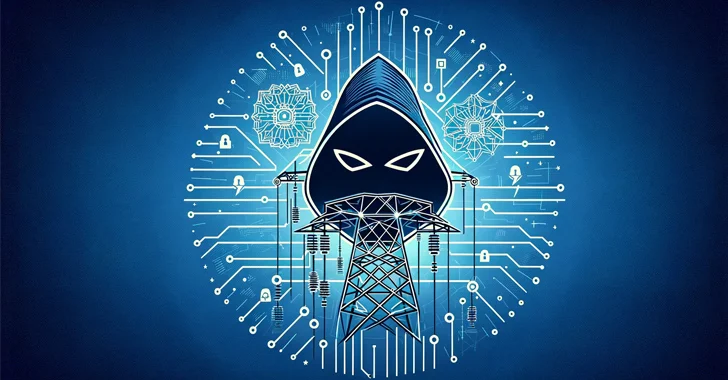The notorious Russian hackers known as Sandworm targeted an electrical substation in Ukraine last year, causing a brief power outage in October 2022.
The findings come from Google's Mandiant, which described the hack as a "multi-event cyber attack" leveraging a novel technique for impacting industrial control systems (ICS).
"The actor first used OT-level living-off-the-land (LotL) techniques to likely trip the victim's substation circuit breakers, causing an unplanned power outage that coincided with mass missile strikes on critical infrastructure across Ukraine," the company said.
"Sandworm later conducted a second disruptive event by deploying a new variant of CaddyWiper in the victim's IT environment."
The threat intelligence firm did not reveal the location of the targeted energy facility, the duration of the blackout, and the number of people who were impacted by the incident.
The development marks Sandworm's continuous efforts to stage disruptive attacks and compromise the power grid in Ukraine since at least 2015 using malware such as Industroyer.
The exact initial vector used for the cyber-physical attack is presently unclear, and it's believed that the threat actor's use of LotL techniques decreased the time and resources required to pull it off.
The intrusion is thought to have happened around June 2022, with the Sandworm actors gaining access to the operational technology (OT) environment through a hypervisor that hosted a supervisory control and data acquisition (SCADA) management instance for the victim's substation environment.
On October 10, 2022, an optical disc (ISO) image file was used to launch malware capable of switching off substations, resulting in an unscheduled power outage.
"Two days after the OT event, Sandworm deployed a new variant of CaddyWiper in the victim's IT environment to cause further disruption and potentially to remove forensic artifacts," Mandiant said.
CaddyWiper refers to a piece of data-wiping malware that first came to light in March 2022 in connection with the Russo-Ukrainian war.
The eventual execution of the attack, Mandiant noted, coincided with the start of a multi-day set of coordinated missile strikes on critical infrastructure across a number of Ukrainian cities, including the city in which the unnamed victim was situated.
"This attack represents an immediate threat to Ukrainian critical infrastructure environments leveraging the MicroSCADA supervisory control system," the company said.
"Given Sandworm's global threat activity and the worldwide deployment of MicroSCADA products, asset owners globally should take action to mitigate their tactics, techniques, and procedures against IT and OT systems."
Source: THN
- Get link
- X
- Other Apps
- Get link
- X
- Other Apps


Comments
Post a Comment